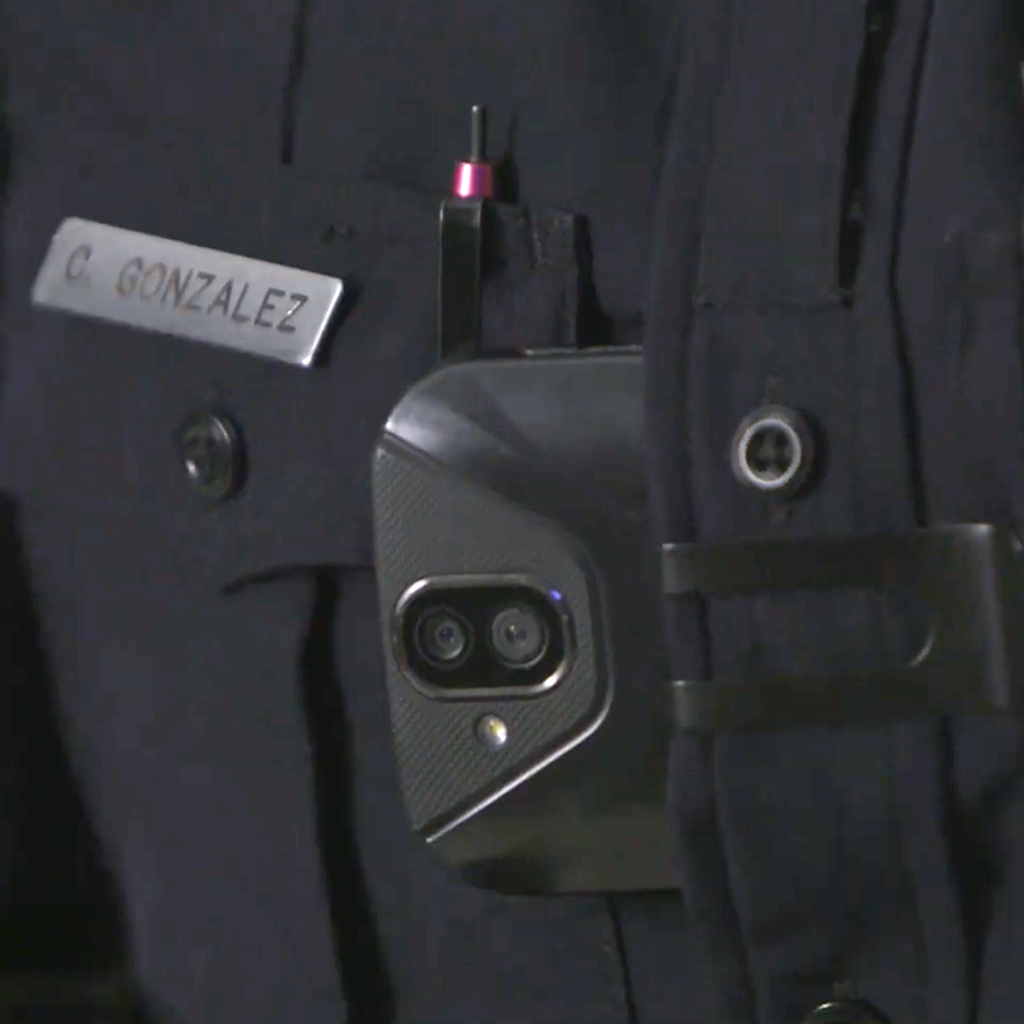Officer-worn body cameras coming to council, step forward for reform after January shooting

When Cambridge police reached out for information on officer body cameras, an unusual response came from a Arizona company with software for off-the-shelf smartphones. (Photo: Visual Labs)
Nine companies have proposed body cameras they could provide to Cambridge police, with technology ranging from cellphones to cameras sewn into an officer’s uniform. The department plans to submit a Surveillance Technology Impact Report on body cameras to the City Council on Monday, spokesperson Robert Goulston said in an email.
The companies were answering a request for information – not bids – issued by the city for return on April 20.
The request was part of the city’s effort to speed up adoption of body cameras after a police officer shot and killed Arif Sayed Faisal on Jan. 4. Faisal, 20, a Bangladeshi immigrant who was cutting himself with a large knife as police pursued him through an industrial and a residential neighborhood in Cambridgeport, was shot by officer Liam McMahon after he did not drop the knife and advanced toward McMahon despite an effort to disarm him with a shot from a “less-than-lethal” sponge projectile, police said.
A district court judge who conducted a judicial inquest found that McMahon was justified. Still, Faisal’s death has sparked efforts to change law enforcement and how the city responds to people in mental crisis, though change has been slow. A city department established to send unarmed responders to some emergency calls won’t start operating until next spring, a group of trained community workers outside government called Heart has yet to win a municipal contract to provide unarmed responses despite City Council support, and the city hasn’t equipped police with body cameras despite pledging to budget for them last year.
The report “will have the latest on the two vendors we are looking at and more information on the timeline,” Goulston said Tuesday in an email.
As of Tuesday, “we are still working out the final details with the vendors and the [police] union as well,” he said. Union leaders have said they support body cameras. The city’s 2018 surveillance technology ordinance requires officials to submit impact reports to the council for new technology, although councillors have no approval power.
Companies that responded to the city’s request for information included Motorola, which provides Cambridge police officers’ radios, and several firms that proposed to use police body camera systems developed by Getac Technology Solutions. Getac says it provides rugged technology including body cameras, computers, tablets and other equipment, plus evidence management software, to public safety, emergency, utilities and other industries in more than 100 countries.
An unconventional proposal
The most unconventional body camera proposal submitted to the city came from Visual Labs of Mesa, Arizona, which said it has a trademark as “the body camera company that does not make body cameras.” Instead, the company offers an “off-the-shelf Android smartphone” that police can buy from their preferred cellphone provider, the proposal said.
Visual Labs provides the software to operate the device and store the data it produces, all of which could be programmed as the city wants, the proposal said. The company’s five-page submittal didn’t answer any of the several dozen questions the request for information asked of vendors.
Those questions had a “‘traditional’ hardware-based body camera solution in mind,” the proposal said. “While we provide equal or greater functionality, our solution can not be described by simply answering a standard list of questions.” Instead, Visual Labs said “the best way to truly learn about the Visual Labs smartphone body camera solution is to arrange a webinar or in-person demonstration so that [the police department] can see the solution firsthand.”
Another company, Utility Associates of Decatur, Georgia, also proposed an Android solution, a “SmartAndroid mobile computing device,” but not a cellphone that could be bought from a retailer. The company’s product, called Eos, distinguishes itself by sticking to officer’s clothing or equipment. “Eos by Utility is the only body camera system that will not fall off,” the proposal said. “All other magnetic mount or clip-on type cameras are profoundly flawed in that they routinely fall off when most needed.”
The city’s request for information included questions such as whether the cameras could be remotely or automatically turned on, whether data could be edited or deleted, whether the systems included facial recognition and whether a recording could be retrieved from the device’s memory even if it had not been turned on. The city also asked how the companies priced their systems and how long it would take to get cameras for 300 officers up and running.



